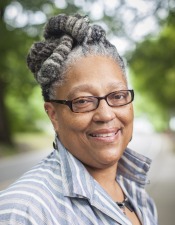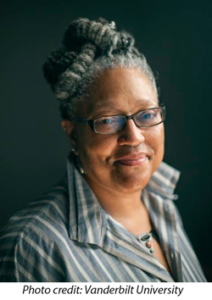Select an item by clicking its checkbox
The following is adapted from a talk given by Dr. Townes during the 2024 Wabash Center’s BIPOC Faculty Luncheon at the annual conference of the American Academy of Religion (AAR) and the Society of Biblical Literature (SBL). Self-care is within the matrix of our total health; how we care for ...
writing about teaching means that i begin with thinking about teaching and why it has always been a part of my life. both of my parents were college professors, and the worlds of books and classrooms were a part of my life for as long as i can remember. some ...
I have been learning over the last several months that transition is not the same thing as change. Change is something I live with every day as I battle the side effects of diabetes—not ever knowing if my feet will betray me or my hands remain cold all day. ...
The opening paragraph of the Vanderbilt University Statement of Commitments: The Divinity School is committed to the faith that brought the church into being, and it believes that one comes more authentically to grasp that faith by a critical and open examination of the Hebraic and Christian traditions. It understands ...

